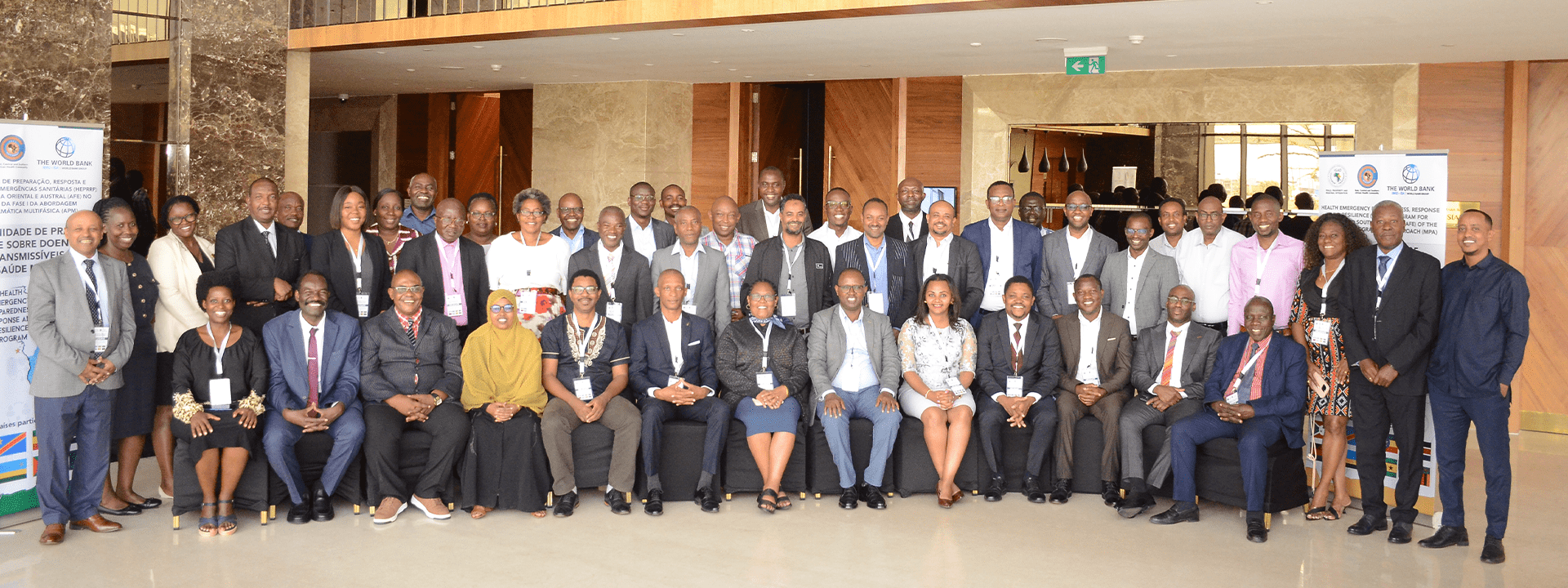November 4, 2024, (NAIROBI, Kenya): The Intergovernmental Authority on Development (IGAD) through the Health Emergency Preparedness, Response, and Resilience Program (HEPRRP) for Eastern and Southern Africa (AFE) Project in collaboration with the East, Central, and Southern Africa Health Community (ECSA HC) are convening an inaugural Community of Practice (CoP) meeting to address Non-Communicable Diseases (NCDs) and Mental Health challenges in the IGAD and ECSA HC regions.
Through this meeting, the experts will review and finalize the Community of Practice TORs as well as revise the draft Protocols for NCD and Mental Health multi-country study/environmental scan for the AFE HEPRR MPA Program and draft of an annual Work Plan for Community of Practice for (NCDs) and Mental Health to encourage regional cooperation and coordination in NCDs and mental health interventions in the participating countries.
The current participating countries of the HEPRR – MPA Project include IGAD’s Member States namely; Ethiopia, Kenya, and other countries include; Sao Tome & Principe, Burundi, the Democratic Republic of Congo (DRC), Rwanda, Malawi and Zambia serving as the regional entities implementing the regional components of the project, complementing country-level interventions aiming at strengthening health system resilience and multi-sectoral preparedness and response to health emergencies in Eastern and Southern Africa.
At the opening, Dr. Fatuma Adan, the IGAD Head of Mission to the Republic of Kenya on behalf of the Executive Secretary flagged that non-communicable diseases and mental health issues are significant challenges that impede the realization of Africa’s health aspirations under Agenda 2063 requiring all stakeholders to have regional cooperation and coordination in NCDs and mental health interventions through the sharing of insights in order to build a resilient health system for the region using a unified and robust approach to NCDs and mental health management.
“NCDs contribute to 37% of deaths in Africa, with mental health disorders accounting for 13% of the global disease burden thus disproportionately affect low- and middle-income communities, exacerbated by factors like COVID-19 disruptions, limited healthcare access, and stigma. The Community of Practice will help reduce premature mortality from NCDs and mental health conditions by fostering shared learning and cooperation among many others” Dr. Adan added.
On behalf of ECSA HC; Dr. Jones Kaponda Masiye; the Manager Non-Communicable Diseases, Food Security and Nutrition in his remarks called for enhanced capacity building, innovation and research for accurate statistics of NCDs and mental health cases for better planning and response towards the reduction of NCDs and mental health.
In reiteration, the Democratic Republic of Sao Tome and Principe as the Chair of the CoP represented by Mr. Leonel Canvalho, the Permanent Secretary of the Ministry of Health appreciated the collective commitment so far expressed by all stakeholders and called on IGAD and ESCA HC regions to implement the Action Plan collectively prepare and respond to the challenges in a regional sustainable effort for greater achievement in the reduction of NCDs and mental health cases.
The meeting was officiated by Dr. Gladwell Gathecha, the Acting Head Division of Non-Communicable Diseases at the Ministry of Health-Kenya mentioned that the traditional approach of isolated national efforts is no longer sufficient to combat NCDs and mental health thus also called on all stakeholders to collectively effectively address these conditions by adopting a collaborative, multi-country approach leveraging collective strengths and resources.
“NCDs and mental health present similar challenges across African nations, including limited resources, weak health systems and inadequate data thus the need to generate valuable insights and evidence-based practices. Through the sharing of information, expertise and best practices among countries can accelerate progress and improve the quality of care as well as a united voice to amplify our advocacy efforts at national and international levels. By working together, we can influence policymakers to prioritize NCD prevention and control in national health agendas working together to build a healthier, more prosperous, and sustainable future for our continent” Dr. Gathecha added.
The participating countries are taking leadership on various thematic areas in which they have comparative advantage and support other countries in advancing in the specific areas with key responsibilities identified as; Ethiopia for Laboratory and Surveillance; Kenya for Local Manufacturing; Burundi for Antimicrobial Resistance and Infection Prevention and Control; DRC for Health and Climate Nexus; and Sao Tome Principe for Non-Communicable Diseases & Mental Health.
The technical areas are being guided under a Community of Practice (CoP) by the Government of Sao Tome and Principe who are taking the lead in providing leadership and playing an advisory role. Other thematic areas such as Research, Monitoring & Evaluation and Digital Health will be cross-cutting for all countries and for prospective members.
The meeting is being attended by technical experts from the seven MPA participating countries and strategic and development partners from areas of NCDs and Mental Health as well as the academia, ECSA and partners such as WHO, Africa CDC AMREF and IGAD Secretariat.
This meeting was preceded by two technical consultative meetings that were held in Mombasa in August 2024 namely: The Non-Communicable Diseases (NCD) Technical Consultative Meeting; and The Mental Health (MH) Consultative Meeting both were aimed at a collaborative approach of shared responsibility and support to tackle NCDs and mental health challenges and issues in the participating countries.
The meeting is with the support from the World Bank.

